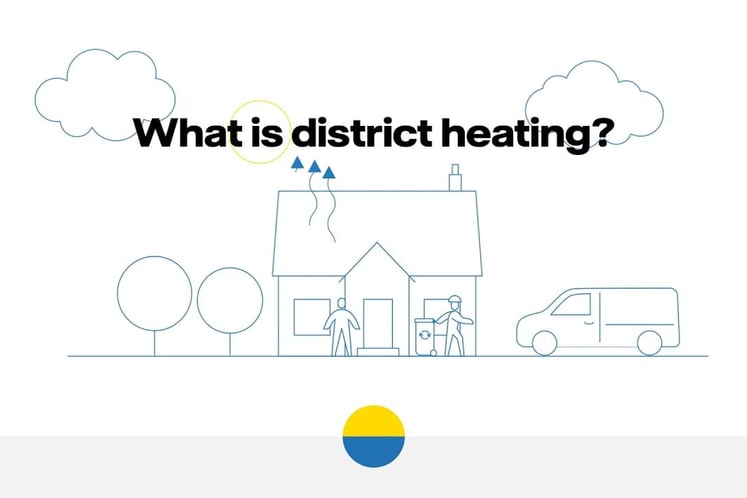Benefits of heat networks
UK homes are being encouraged to move to low carbon heating, but what are the benefits?
Buildings that currently use fossil fuels for heating, such as a gas boiler, will need to replace their systems to meet government targets. Soon, gas boilers simply won't be allowed.
Heat networks present a forward-thinking solution for urban development. Recognised for their efficiency and sustainability, heat networks offer many benefits for developers, building owners, and operators.
Video player requires marketing cookies.
To view this content please click here to allow marketing cookies.
Lower costs, higher efficiency
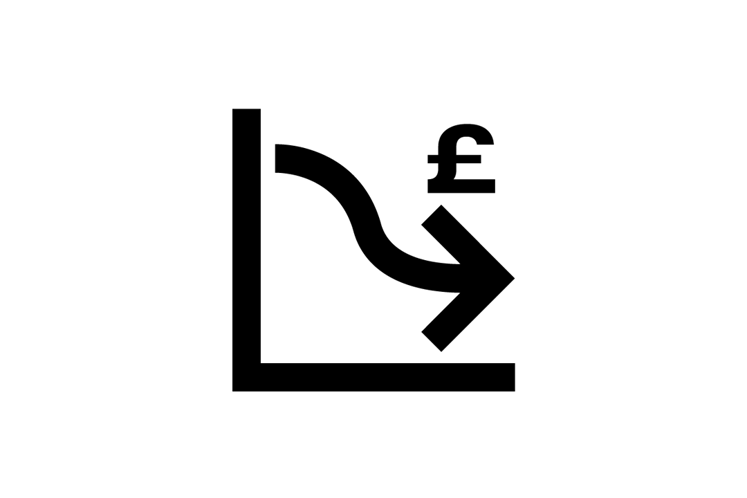
Cost savings
Transitioning to a heat network simplifies the heating infrastructure in new developments. By replacing individual boiler plants with a single heat substation, developers can significantly reduce procurement, capital, operational, maintenance, and replacement costs. This streamlined approach not only saves money but also simplifies the management of heating systems.
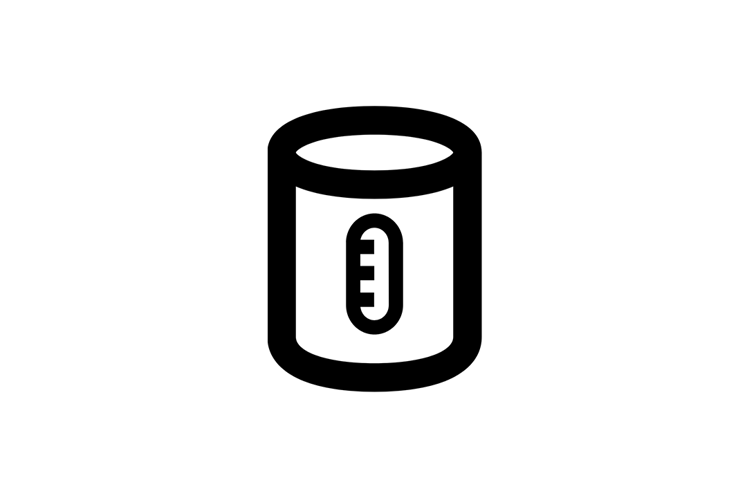
Space efficiency
Heat substations occupy far less space than traditional gas boilers, freeing up more area for lettable or saleable floor space. This efficient use of space can directly enhance the value of your development.

Operational efficiency
The adaptability of heat networks to adjust the temperature and volume of heat delivery eliminates the need for oversizing heating systems. This means lower installation and maintenance costs, alongside improved operational efficiency, particularly during extreme weather conditions.
Security and environmental benefits

Energy security
In an era of volatile energy markets, heat networks offer energy security and resilience. By utilising diverse heat generation sources and securing long-term contracts with price guarantees, heat networks provide a stable and reliable heating solution, free from the unpredictability of fossil fuel prices.

Improved air quality
By eliminating the need for gas boilers and the burning of fossil fuels in residential areas, heat networks contribute significantly to cleaner air and a healthier environment. This is a crucial step towards improving the quality of life in our urban communities.
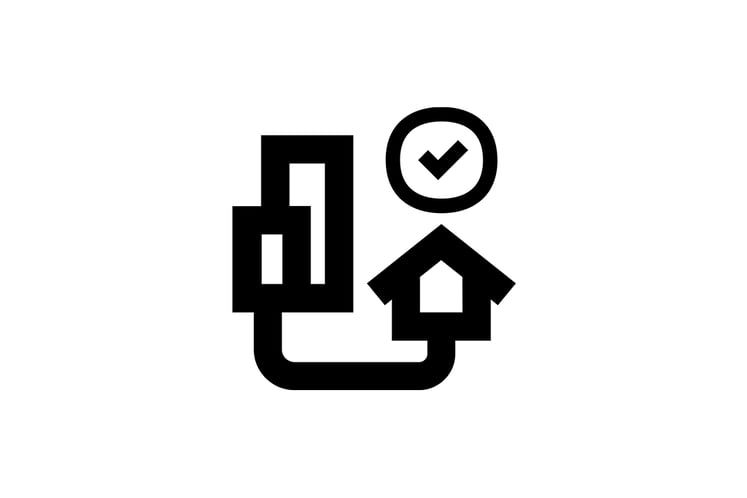
Carbon reduction
Connecting to a heat network is an effective and cost-efficient method for reducing carbon emissions, especially in buildings undergoing major refurbishments. This is particularly relevant for hard-to-treat buildings, such as listed properties or those with solid walls, making district heating an ideal solution for achieving sustainability goals.
Future-proofing energy systems
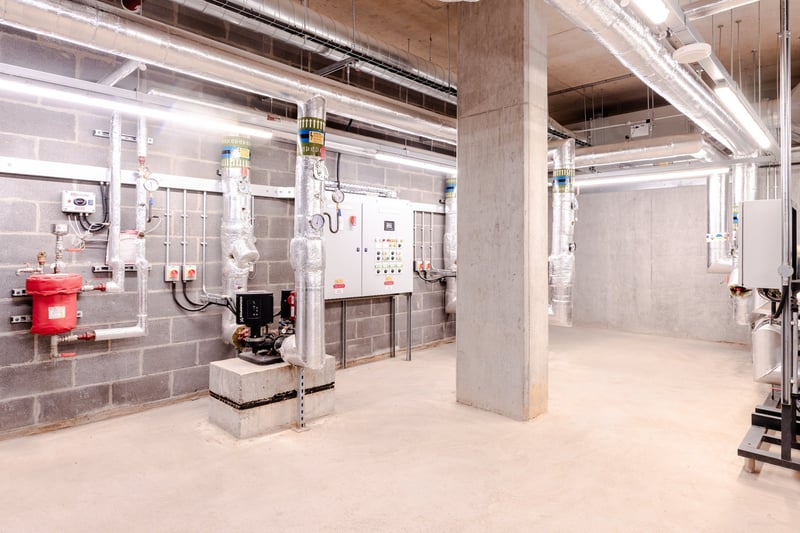
As the UK moves towards low carbon heating to meet government targets, the transition away from fossil fuels becomes imperative. District heating networks are inherently future-proof, designed to meet and exceed current and forthcoming environmental standards. This ensures that buildings connected to heat networks are well-prepared for a future where traditional gas boilers are phased out, offering peace of mind and a clear path towards sustainability.
Heat networks offer a robust, efficient, and sustainable heating solution that aligns with the future of urban development. By choosing a heat network, developers, building owners, and operators can enjoy lower costs, enhanced security, environmental benefits, and a commitment to future-proofing energy systems.
Co-benefits: environmental and social
The advantages of heat networks extend far beyond carbon reductions, cost savings, and enhanced energy security. They also deliver substantial environmental and social value - supporting healthier communities and a fairer, more resilient energy future.
In Scotland, we commissioned research in partnership with the Edinburgh Climate Change Institute (ECCI) at the University of Edinburgh. The study explored the combined environmental and social impact of deploying heat networks alongside energy efficiency upgrades across Edinburgh, Midlothian, and East Lothian.
The results speak for themselves:
- £2.1 billion in total benefits from heat network expansion and home retrofits over 25 years, equal to over £13,000 per household.
- £353 million in direct social benefits from improved air quality, reduced cold and damp, and better health outcomes—especially for vulnerable communities.
- Heat networks are identified as the only viable low carbon heating solution in many dense urban areas, aligning with Scotland’s Just Transition goals

Related reading

Using local, low carbon heat sources to deliver a city-wide heat network
UK cities need to transition to low carbon heat sources quickly and at scale. Heat networks can do just that by taking advantage of multiple heat sources, with customers benefiting from a re...

Key reasons to consider district heating for your development or decarbonisation plan
Despite the obvious benefits of heat networks delivering efficient, low carbon heat, they remain relatively unknown to developers and consumers, writes Amy Ritchie, External Affairs lea...

Four easy wins heat networks can implement to benefit both their customers and their business
Better customer experiences on heat networks will not only help networks get ahead of regulation but will also build consumer confidence in the sector, writes Zoe Guijarro at Citizens Advice...
Why heat networks?

Most UK homes are heated using natural gas boilers, but there are far more resource-effici...
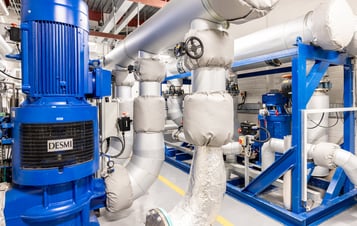
UK homes are being encouraged to move to low carbon heating, but what are the benefits?

A heat network, also referred to as district heating, is a system of delivering heat to ho...

Heat networks are used in many parts of the world to deliver low carbon heat to homes and ...

